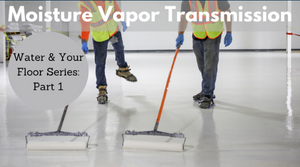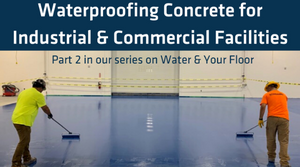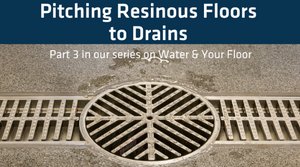DOES MY CONCRETE REQUIRE MOISTURE TESTING BEFORE A FLOORING INSTALLATION?
Do I Need to Test My Concrete for Moisture?
While concrete slabs may seem fully solid, they are actually quite moist and porous. In their early stages they begin as a mixture of water, cement, sand and aggregate. They then harden into a still-porous substance that continues to absorb and transfer moisture throughout its lifetime.
When installing floors over top concrete, unless the construction is new, it is important to conduct a moisture test. This helps determine what moisture content is present in the concrete and whether it is safe to install over the slab.
In the following StonTalks video, Stonhard's Tim Smith, Senior Manager of Field Engineering and Training, discusses this topic in depth, including acceptable moisture readings, vapor barriers, industry standard testing procedures, and more. Additionally, Tim addresses some myths and misunderstandings surrounding concrete moisture.
What is Moisture Vapor Transmission?
Unaddressed ground moisture can adversely affect any flooring system installed over concrete as moisture migrates upward in the form of vapor (moisture vapor transmission). This is because the flooring acts as an airtight barrier that prevents moisture from simply evaporating on its own.
What Problems Can Moisture in Concrete Cause?
If a moisture issue is not confronted, your facility is likely to experience
- The growth of mold or mildew.
- Degradation, rot, or warpage of certain organic flooring materials installed over the concrete.
A resinous floor installed over the right slab may last for decades, even as long as 30 years or more.
Stonhard is committed to formulating the right products for your environment with expert installation to ensure your floor goes the distance. For more information about Stonhard and its products, visit us on the web.
To read more, check out our blog series ‘Water and Your Floor’ here:


